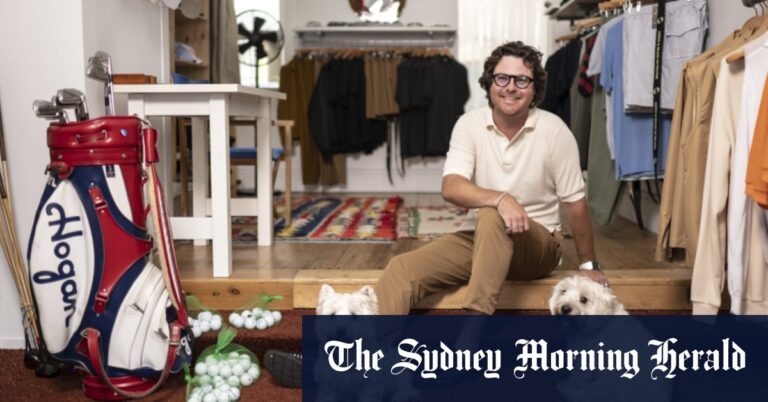Loading
“There is also the issue of greenwashing and the overall flooding of information about sustainability. Small businesses are short on time throughout the day: they are worried about overheads, sales, and on top of this, they also need to improve what they are currently doing. There is no resource that kind of easily points them in the right direction,” he says.
Greenwashing is defined as creating a false impression about how environmentally friendly an organisation’s products and goals are.
But Twemlow said small businesses can examine who they bank with, where their energy comes from and where they are spending money.
“That means asking questions from your suppliers – what are they doing to reduce their environmental impact? It is all difficult to become sustainable under the current way we operate as an economy. So, how can you mitigate and reduce the negative impacts you may have?”

Ben Armstrong’s business was powered almost entirely off solar – with a biofuel generator as a back-up source of power – used filtered rainwater as drinking water, turned leftover food waste into compost and had uniforms made from recycled fabrics.
Melbourne hospitality business owner Ben Armstrong, a passionate environmentalist for the past ten years, realised he might be able to do more for the planet when it came time to open his own kitchen. atiyah, a Lebanese street food kitchen, was powered almost entirely by solar with a biofuel generator as a backup, used filtered rainwater as drinking water, turned leftover food waste into compost and had uniforms made from recycled fabrics.
“My ultimate goal was to bring everything available to us into one business and lead the industry. By doing that, I hoped to influence others to follow, which is exactly what has happened. If you are passionate about something, you just do it.”
Armstrong has since closed his Melbourne kitchen – although the catering business still runs in the city – and plans to bring the kitchens to Byron Bay in NSW, where he has recently moved.
Many experts also say while it is positive that businesses going green, greater regulation is needed. Already, the Australian Competition and Consumer Commission and the Australian Securities and Investments Commission have flagged they will expand their remit to look at misleading environmental claims to cater to changing consumer demands earlier this year. Their work will be cut out for them. Companies like Shell, Nike, H&M, Coca-Cola, Starbucks, Ryanair, HSBC, Volkswagen and McDonald’s have all found themselves under the greenwashing microscope – one that has proven costly.
University of Sydney Professor of Organisational Studies Christopher Wright is sceptical that the necessary regulatory crackdown will happen. “There is political hesitancy to move towards tougher regulation,” he says. “But the problem is that if we rely on individual, enlightened businesses, we would end up with a little island of businesses that are doing less unsustainable activity.
“We need a broader economic shift towards decarbonisation of the transport, electricity and manufacturing sectors.”
Get to the heart of what’s happening with climate change and the environment. Our fortnightly Environment newsletter brings you the news, the issues and the solutions. Sign up here.


